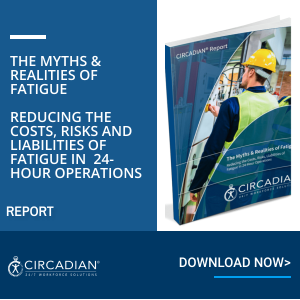A fatigue management training course is a structured program designed to educate employees about the importance of sleep and how to manage fatigue effectively in the workplace. These courses provide actionable strategies for improving sleep quality, recognizing symptoms of fatigue, and implementing organizational policies that promote employee alertness and well-being
Why Invest in a Fatigue Management Training Course?
Providing a fatigue management training course as part of your company's health and wellness strategy or safety initiative offers numerous benefits for both employees and employers:
- For Employees: Sufficient amounts of quality sleep acts as a "magic pill" for enhancing both physical and mental health. Adequate rest can reduce stress, boost immunity, and improve mood.
- For Employers: Healthier employees lead to decreased healthcare costs and lower absenteeism rates.
- For Employees: A well-rested workforce is less prone to making mistakes, reducing workplace errors and improving safety.
- For Employers: Fewer errors, incidents and accidents leads to lower costs associated with equipment repair, medical claims, lower absenteeism, and workers' compensation costs.
- For Employees: Improved sleep fosters innovation, colloboration, and better problem-solving skills.
- For Employers: Increased productivity and efficiency contribute positively to the bottom line.
Fatigue and sleep issues are widespread, with the National Safety Council reporting that 43% of workers are sleep-deprived.
Signs that your workforce might benefit from a fatigue management training course include:
- Increased or high absenteeism
- Higher rates of workplace accidents and safety incidents
- Declining productivity and efficiency
- Low employee morale
Who Should Attend a Fatigue Management Training Course?
Everyone in your organization can benefit from a fatigue management training course, including:
- Day Workers: Those who work traditional hours can learn to optimize their sleep environment and establish a bedtime routine that optimizes their sleep.
- Shift Workers: Employees who work non-traditional hours face unique challenges and require specialized strategies to manage fatigue effectively.
Involving families in the training can enhance support systems for shift workers, further improving the training's long-term value.
Interested in Shiftwork, Scheduling & Fatigue Risk Management Best Practices?
Subscribe to CIRCADIAN's email list for cutting-edge information, updated research findings, and easy-to-implement strategies, all tailored to optimize the health, safety, and performance of your shiftwork and extended hours operations.
Join our community of 32,000+ industry leaders and receive practical tips and expert insights to optimize your 24/7 workforce.











